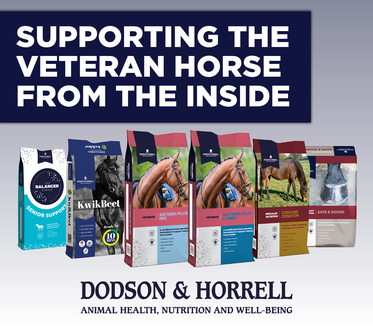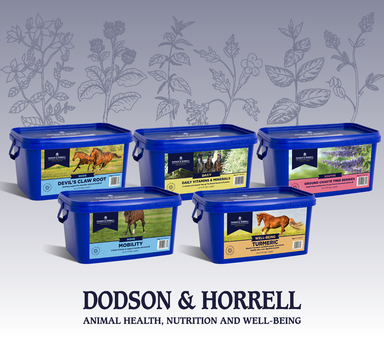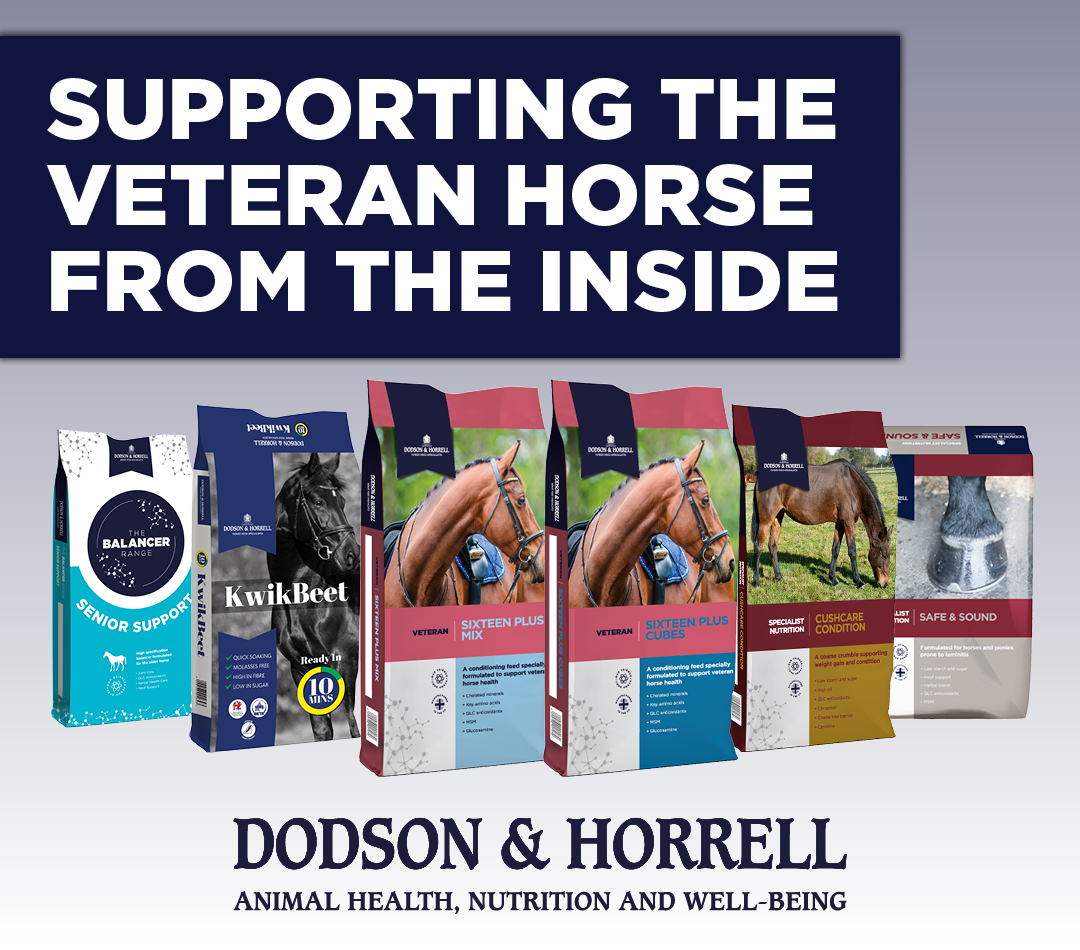Veteran horses (15yrs +) can often feel the effects of winter more than their younger counterparts and, with the prospect of decreased grazing for many in the not so distant future, it is important that they are getting everything they need right now. Naturally as horses age their bodies can begin to slow down and maintaining normal function of their bodily systems can require extra support. Each horse should be treated as an individual when it comes to planning their veteran diet and their physical and mental needs should be taken into account.
There are a number of questions you can answer to help determine any additional needs your veteran might have:
What is their current bodyweight?
Using body fat scoring (see how here) or a weigh tape to regularly monitor your horse’s weight is an effective way of spotting any age-related changes in their condition early.
Are their teeth still in good condition? Can they effectively chew their current feed and forage?
The most common issue faced by older horses is the deterioration of their teeth meaning they are unable to chew effectively as fast or for as long resulting in lower intake of forage. In time, this can lead to weight loss and other health implications due to insufficient fibre or a deficiency in other nutrients. It is very important to have your veteran’s teeth checked regularly by a professional equine dentist or your vet, and for you to closely monitor their body condition and weight to spot any negative changes early.
What level of work are they in? What are their energy requirements?
Just because a horse is classed as a veteran at 15yrs old, it doesn’t mean they are ready for their pipe and slippers just yet. Some horses compete at the top levels way into their late-teens and many can carry on in work into their 20s too. As with all horses, the harder they are working the higher their requirement for energy from their diet is. Considering a joint supplement earlier rather than later may be wise as a horse’s joints are under continuous strain for their whole lives.
Do they have any diagnosed clinical conditions such as EMS, Cushings, Arthritis or any other illness?
If so, their individual nutritional requirements should be discussed with your vet or one of our trained equine nutritionists via our dedicated helpline.
What ingredients to look for when choosing a feed for support your veteran
It is important to ensure that your horses’ diet is balanced at all times. Providing a vitamin and mineral supplement (or feed ready supplemented with vitamins and minerals) can offer your veteran the support they need to maintain their general bodily functions, as well as enable them to absorb the essential nutrients they need from their diets.
Fibre content is essential for good gut function (digestion) and themoregulation (warmth). Eating forage acts as a hot water bottle for a horse as it is ferments inside the gut and so if a veteran horse’s consumption of long fibre (hay/haylage) reduces, they may become less resilient in cold conditions.
Protein in equine feeds Is made up of amino acids. Quality, low-intake D&H feeds and balancers, contain a suitable amount of protein that will provide optimum levels of these essential amino acids to support your older horse’s muscular and energy requirements as they navigate their twilight years.

Vitamin and mineral supplementation is useful if your older horse is not consuming sufficient forage, and even if they are, these products can help balance natural deficiencies that are present in forage and many UK pastures.
Look for inclusions of Copper, Zinc, Manganese, and Biotin for these reasons, and to help support healthy coats and hooves throughout life.

Choosing a palatable feed and one that can be soaked and therefore easily chewed means horses with dental issues can digest it much more easily meaning that they can take all they need nutritionally from their diet.




